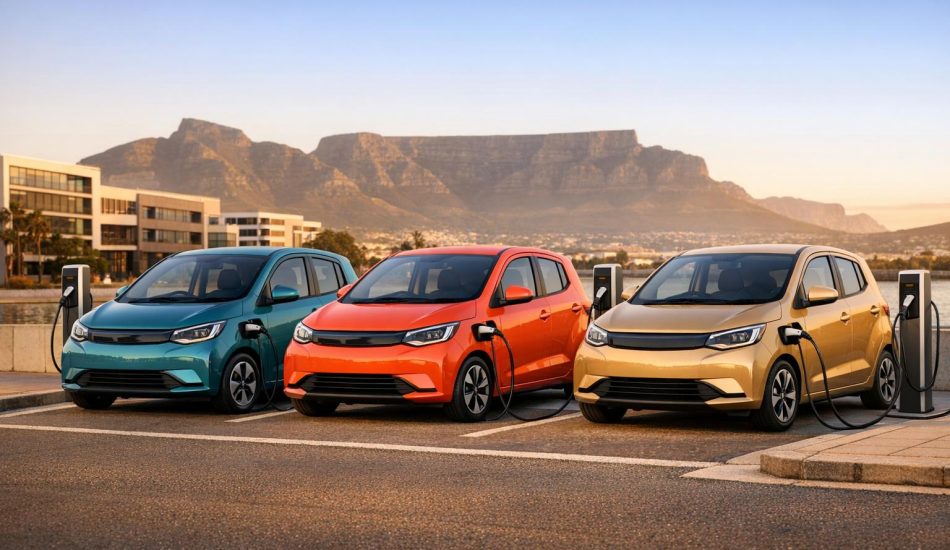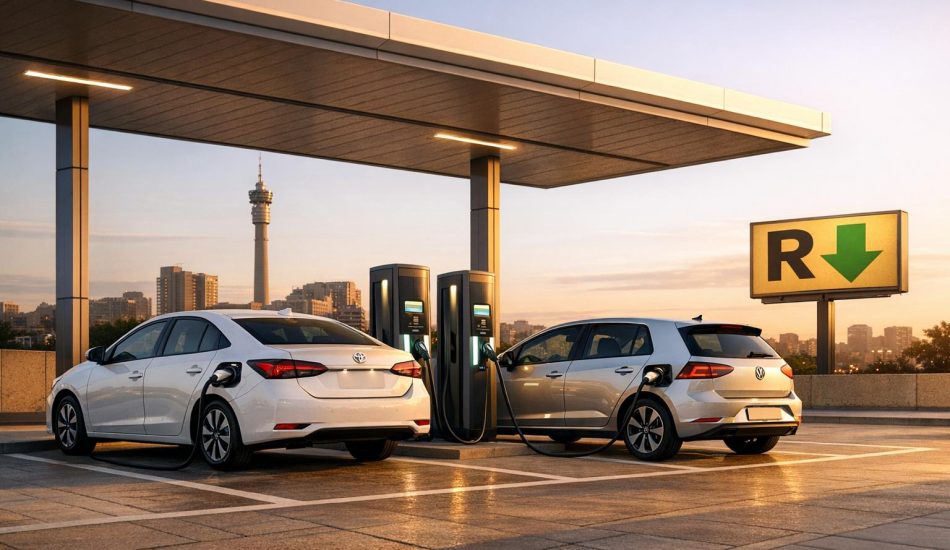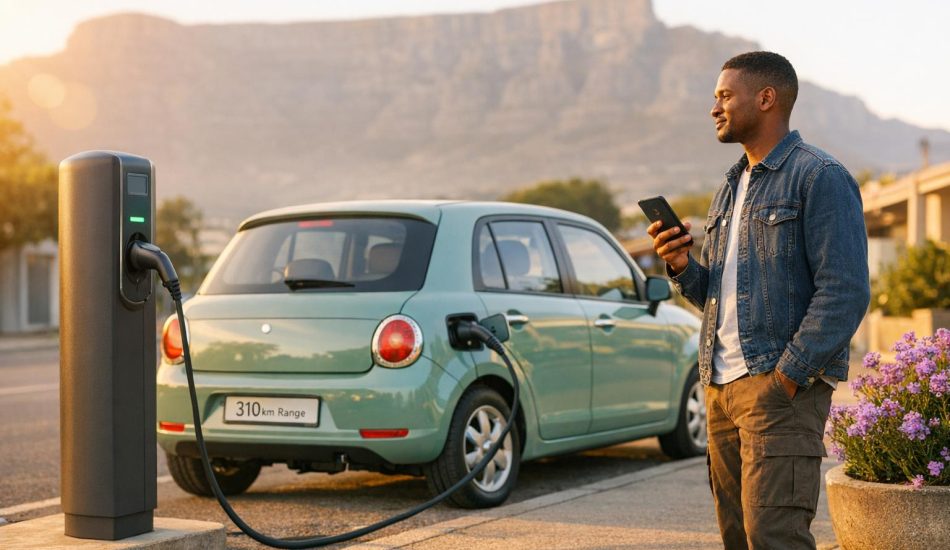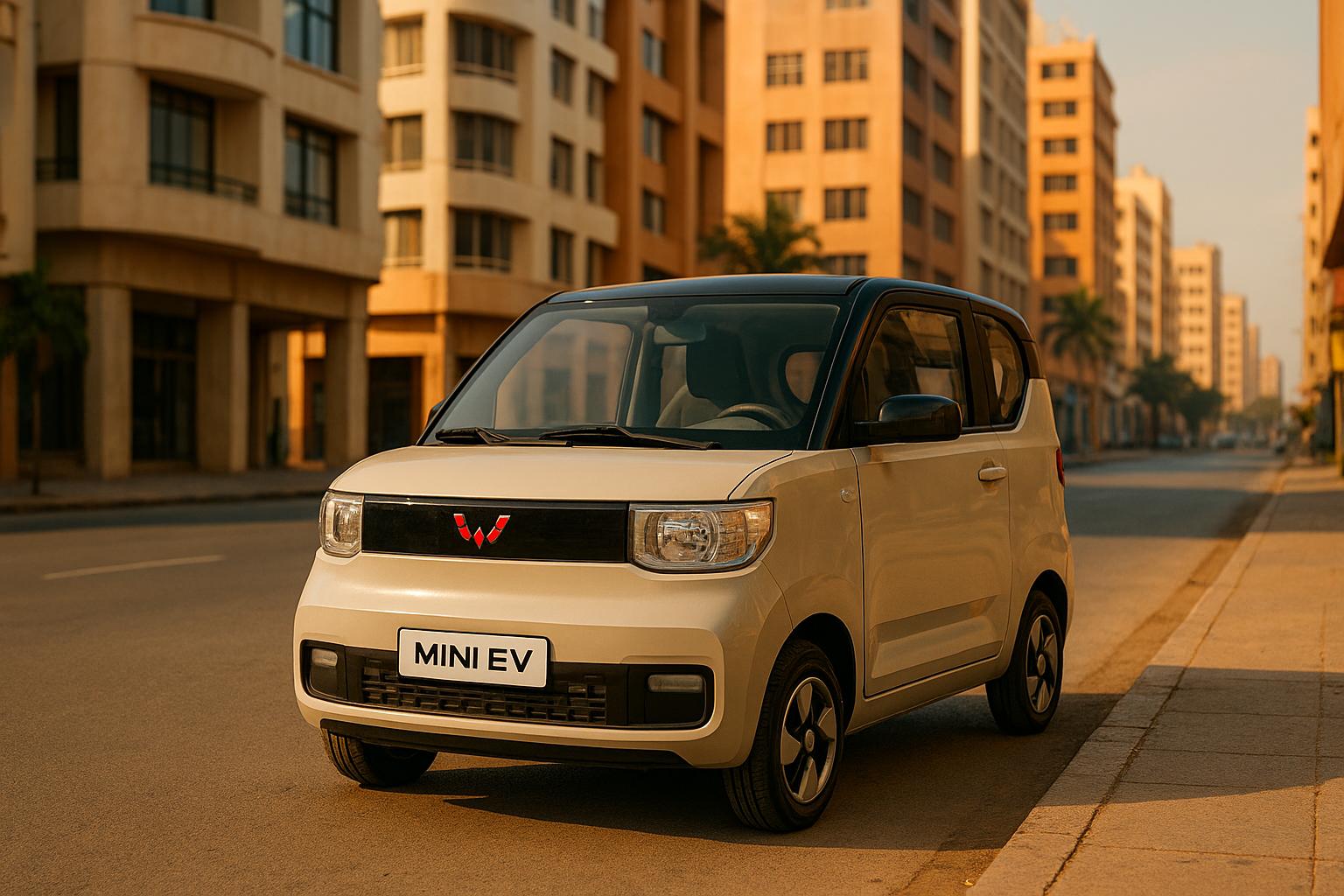
The Wuling Mini EV, priced around $4,500, is gaining traction in Africa as a practical, budget-friendly electric vehicle for urban drivers. Compact, efficient, and easy to maneuver, it’s ideal for city living, offering low running costs and a reliable option for short commutes. If you’re considering buying one, here’s a quick guide:
- Why It’s Popular: Compact size (9.8 ft long), perfect for tight parking and heavy traffic. Energy use is just 8.1 kWh per 62 miles, keeping costs low.
- Where to Buy: Options include official dealerships, trusted exporters like Shanghai Kiwi Auto Sales, and online platforms such as EV24.africa, which offers delivery across all African countries.
- Cost Breakdown: Prices range from $5,842 to $7,186, depending on specs and order size. Shipping costs range from $1,500 to $3,500.
- Import Steps: Secure proper documentation (e.g., commercial invoice, customs clearance), ensure compliance with local regulations, and arrange shipping and registration.
This EV is an affordable, low-maintenance solution for urban mobility, but purchasing involves navigating import rules, dealer verification, and logistics. Platforms like EV24.africa simplify the process by handling sourcing, delivery, and compliance.
ዋጋቸው ቀነስ ያሉ የኤሌክትሪክ መኪኖች በአዲስአበባ !! Wuling mini ev |car Price in Ethiopia !! #car #insurance #auto
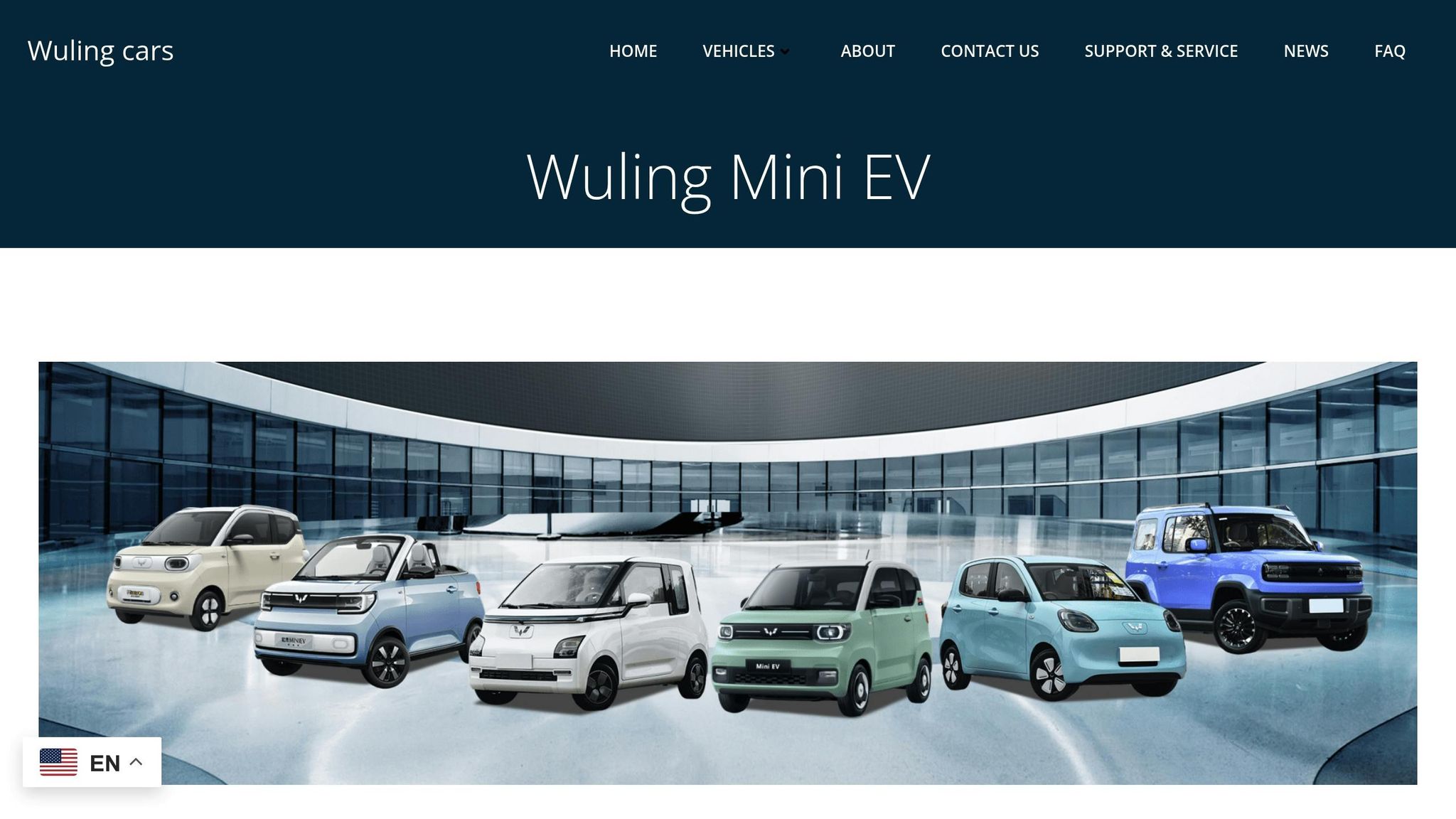
Why the Wuling Mini EV Works for Urban African Drivers
The Wuling Mini EV has captured attention for its practicality in bustling urban environments, and it’s easy to see why. Its small size and functional design make it an excellent choice for navigating the challenges of city life.
Compact Design for Crowded Cities
At just about 9.8 feet (3 meters) long and with a wheelbase of 6.6 feet (2 meters), this EV is perfectly suited for the narrow streets and tight parking spots often found in urban areas. Its compact footprint allows drivers to maneuver through heavy traffic without breaking a sweat, making it particularly appealing for cities with high congestion.
Pricing and Cost Details
One of the standout features of the Wuling Mini EV is its affordability. It’s designed to be accessible for a wide range of buyers, which is a significant advantage in markets where budget-friendly options are in demand. Its low operating costs, thanks to its electric powertrain, further reduce the financial burden on owners, making it a cost-effective solution for daily commutes.
Driving Range and City Use
The Wuling Mini EV is built with city driving in mind. Its range is tailored for short trips, which aligns perfectly with the needs of urban drivers. Whether it’s running errands, commuting to work, or picking up passengers, this EV delivers reliable performance for everyday city use. Its focus on efficiency and practicality ensures it meets the demands of urban lifestyles while keeping environmental impact low.
Where to Buy a Wuling Mini EV in Africa
If you’re looking to purchase a Wuling Mini EV in Africa, there are several reliable avenues to explore. From official dealerships to online platforms, these options ensure a secure and straightforward buying process.
Official Dealerships and Importers
Authorized Wuling distributors in Africa are a great starting point. For example, in South Africa, these distributors offer local support, warranties, and after-sales services, giving you peace of mind during and after your purchase.
In areas without local distributors, authorized export dealers step in to handle everything from model selection and customization to payment, shipping, and customs documentation. Some Chinese trading companies, like Shanghai Kiwi Auto Sales, specialize in exporting both new and used Wuling Mini EVs to African countries, making them another trustworthy option.
EV24.africa: A Trusted Online Marketplace
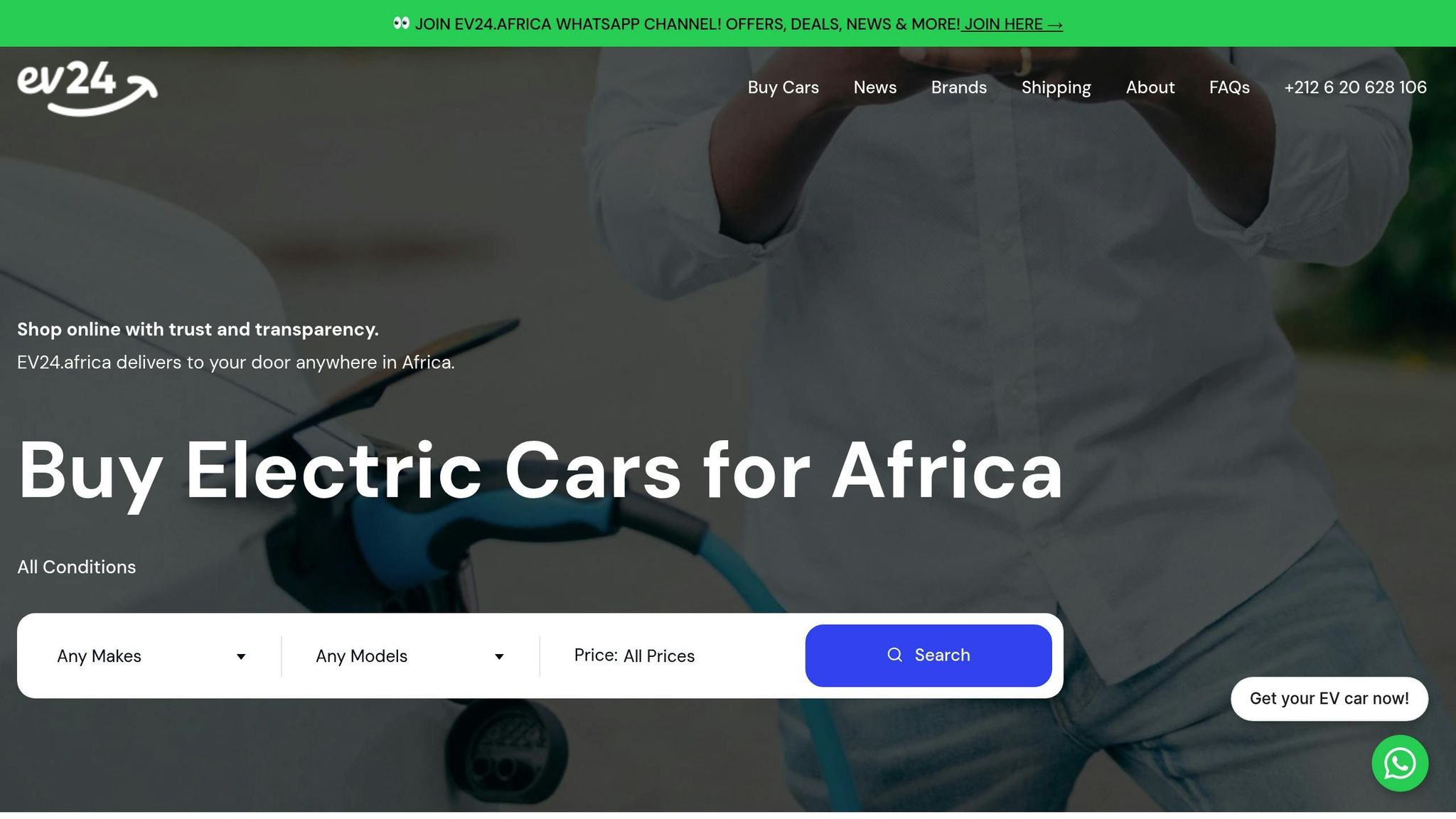
Online platforms like EV24.africa provide a convenient alternative to traditional dealerships. This marketplace is dedicated to electric vehicles in Africa, offering transparent pricing, detailed specifications, and delivery services across all 54 countries. Financing options are also available, making it easier for buyers to spread out payments instead of handling the full cost upfront.
EV24.africa’s deep understanding of the African market ensures that listings cater to local needs and regulatory requirements. Whether you’re searching for a new or used Wuling Mini EV, their platform offers all the details you need to make an informed decision.
Another platform worth mentioning is Charge Ninja, which supports African buyers by sourcing Chinese EVs directly from factories. By 2025, Charge Ninja plans to offer factory-direct pricing for the Wuling Mini EV in countries like Kenya, along with full support for compliance and delivery. This direct-from-factory approach can often lead to lower costs compared to traditional import channels.
How to Check Dealer Credentials
Before committing to a purchase, it’s crucial to verify the legitimacy of the dealer. Look for their "Audited Supplier" status, business licenses, and import/export authorizations. Legitimate dealers will have documentation proving their authorization to sell Wuling vehicles and their relationship with the manufacturer or official distributors.
Ask for references from past customers, especially those who have purchased vehicles for African markets. A reputable dealer should have a history of successful deliveries and satisfied clients and should be able to provide contact information for recent buyers.
When it comes to payment, stick to secure options like telegraphic transfers (TT) or letters of credit (LC). Be cautious of dealers who request full payment upfront without providing proper documentation, as this could be a red flag.
sbb-itb-99e19e3
Step-by-Step Guide to Purchasing a Wuling Mini EV
Buying a Wuling Mini EV in Africa requires careful planning and attention to detail. This guide will take you through the process, from choosing the right model to receiving your new electric vehicle.
Research and Select Your Model
Start by exploring the different Wuling Mini EV variants to find one that suits your daily needs. Look at specifications and user reviews to ensure the model aligns with your urban commute.
Think about your typical driving distance and check the charging infrastructure available in your area. Since driving ranges vary between models, pick one that comfortably covers your daily trips with some extra range for unexpected errands. Also, consider the car’s compact size – perfect for navigating crowded streets and fitting into tight parking spaces.
For up-to-date specs and reviews, visit EV24.africa. Once you’ve chosen your model, move on to gathering price quotes and organizing payment.
Request a Quote and Arrange Payment
Getting clear and detailed pricing is key to a smooth purchase. After selecting your preferred model, request quotes from authorized Wuling export dealers or platforms like EV24.africa. Make sure the quotes include the FOB (Free on Board) price, shipping costs, and applicable taxes.
As of September 2025, the Wuling Mini EV is priced between $5,842.00 and $7,186.00, depending on the order size and specifications. For instance, Laizhou Yuantong Automobile Service Co., Ltd., an authorized dealer in China, lists the price at $7,186.00 for orders of 1–49 units and $5,842.00 for bulk orders of 50 or more. The updated Hongguang Mini EV is priced around $6,200.
Use secure payment methods like international bank transfers (TT) or Letters of Credit (LC). Work with your bank to ensure the payment process is safe and transparent, protecting both you and the seller.
Complete Import and Registration Paperwork
Proper documentation is essential for a hassle-free import. Collect key documents such as proof of purchase, detailed vehicle specs, and manufacturer certificates before the vehicle ships.
Your dealer should provide export documents like the commercial invoice, packing list, and bill of lading to streamline customs clearance. Reach out to your local customs authority to understand the specific requirements for importing electric vehicles. Some African countries offer reduced tariffs or tax incentives for EVs, but your vehicle must meet local safety and emissions standards. Be prepared for inspections or certifications that may add time and costs.
Contact your local motor vehicle department to learn about registration requirements, including any necessary safety inspections or emissions tests. Once your paperwork is ready, you can focus on shipping and delivery.
Organize Shipping and Delivery
Coordinate shipping with your dealer or an automotive logistics company. Most Wuling Mini EVs are shipped to Africa via container ships, with delivery times ranging from 4 to 8 weeks, depending on your destination port and customs processing.
You can choose between shared container shipping, which is more budget-friendly, or dedicated container shipping for faster and more secure delivery. For single vehicles, shared container shipping is often the best value, costing between $1,500 and $3,500, depending on your destination.
Plan for port clearance services upon arrival. You can handle this independently or hire a local customs broker, which typically costs $300–$800. Additionally, arrange for the vehicle’s final delivery from the port to your location. Local transport costs can range from $200 to $600, depending on distance and rates. Some dealers offer door-to-door delivery services, which simplify the process but come at a higher price.
Finally, make sure your vehicle is insured during shipping. While most dealers include basic transit insurance, consider purchasing additional coverage for extra peace of mind in case of damage during transport.
Import Regulations for Electric Vehicles in Africa
Navigating the import process for electric vehicles (EVs) in Africa involves understanding the specific rules and requirements of each country. Getting familiar with duties, certifications, and necessary paperwork can save time, avoid unexpected costs, and ensure a hassle-free experience.
Customs Duties and Taxes
Customs duties on EVs vary widely across African nations, but many governments are lowering these fees to promote EV adoption. For example, Zimbabwe has reduced its EV customs duty from 40% to 25%, effective January 1, 2025. Additionally, the country offers a 0% duty on electric tractors, alongside rebates for solar charging stations.
In South Africa, imported EVs face a 25% import duty and an ad valorem tax that can go as high as 30%, depending on the vehicle’s value.
Kenya imposes a 25% import duty and a 10% excise duty, both calculated based on the Current Retail Selling Price and the vehicle’s age. Furthermore, imported vehicles must not exceed eight years of age.
Ghana is taking steps to encourage EV imports by planning duty exemptions as part of its National Electronic Vehicle Policy. This includes proposed changes to the VAT Act and other related laws.
If you’re importing from China, you can take advantage of the China-Africa Free Trade Agreement. By presenting a certificate of origin, you may qualify for a 5% VAT exemption.
Vehicle Inspection and Certification
Once duties and taxes are addressed, the next step is ensuring your vehicle meets all inspection and certification requirements. Different countries have unique protocols, so it’s crucial to verify what’s needed before shipping. For instance, Kenya requires a Pre-Export Certificate of Conformity and a Certificate of Conformity. These certifications vary by country and are handled by specific agencies. In Nigeria, the Standards Organization of Nigeria oversees SONCAP certification, which is valid for one year. Meanwhile, South Africa relies on the South African Bureau of Standards (SABS) for certification, which remains valid for two years. East African Community countries, on the other hand, issue single-use Certificates of Conformity.
After the vehicle arrives, local agents can assist with road registration and additional conformity certifications. This process may include inspections for safety, emissions, and other compliance checks. Interestingly, even electric vehicles like the Wuling Mini EV may be subjected to emissions testing in some countries as part of standard inspection protocols.
Be sure to research your destination country’s specific requirements, including age limits, emission standards, drive orientation, and safety regulations.
Required Documentation
Having the right paperwork is essential for a smooth import process. Here are the key documents you’ll need:
- Commercial Invoice: Confirms the vehicle’s purchase and value.
- Certificate of Origin: Verifies the country of manufacture and eligibility for trade agreement benefits.
- Battery Safety Documents (MSDS): Required for customs pre-review of electric vehicles.
- Electronic Cargo Tracking Document (ECTN/CTN/ACID): Must be submitted at least five days before the vehicle arrives at port to avoid fines.
- Certificate of Conformity: Ensures the vehicle complies with local standards.
- Import License: Required in some countries for government authorization to import.
| Document | Purpose | When Required |
|---|---|---|
| Commercial Invoice | Proof of purchase and vehicle value | Always required |
| Certificate of Origin | Confirms country of manufacture and trade benefits | Always required |
| Battery Safety Documents (MSDS) | Customs pre-review for electric vehicles | Required for all electric vehicles |
| Electronic Cargo Tracking Document | Customs clearance prerequisite | Submit 5+ days before port arrival |
| Certificate of Conformity | Verifies compliance with local standards | Required in most countries |
| Import License | Government authorization to import | Mandatory in some countries |
Your exporter must be trustworthy and capable of providing all required documentation, including vehicle inspection reports and battery safety data sheets. Platforms like EV24.africa can connect you with established dealers who ensure proper documentation in the correct format.
Keep both physical and digital copies of all documents, as some countries demand originals while others accept certified copies. Having access to both formats reduces the risk of delays during customs clearance and registration.
Why the Wuling Mini EV is a Smart Investment for Urban Africa
The Wuling Mini EV is perfectly suited for Africa’s bustling urban centers, where challenges like traffic congestion, high fuel prices, and limited parking are part of daily life. This compact electric vehicle offers practical solutions to these issues without breaking the bank.
With a starting price of $8,200 for the Wuling Bingo and $10,500 for the Bingo Plus, the Mini EV is an affordable option. Its electric motor eliminates fuel costs entirely, while its compact size makes navigating crowded streets and finding parking much easier. On top of that, the Mini EV’s low maintenance needs – thanks to fewer moving parts – help keep long-term costs down. These features make it a smart choice for anyone looking to invest in a cost-effective and efficient urban vehicle.
However, buying a Wuling Mini EV requires careful consideration of the import process and selecting the right dealer. This is where EV24.africa comes in. Operating across all 54 African countries, EV24.africa has become a trusted marketplace for electric vehicles. The platform manages every step of the process, from sourcing the car to delivering it to your doorstep. Their services include customs clearance and local registration, ensuring buyers don’t have to navigate the complexities of importing on their own. With a team of over 200 professionals spread across five African countries, EV24.africa guarantees compliance with local regulations and provides transparent pricing with no hidden fees.
What makes EV24.africa stand out is its experience. Building on the success of AUTO24.africa, the company has already established itself as a leader in introducing electric vehicles to African markets. This expertise allows them to tackle the unique challenges of importing EVs across the continent effectively.
To make the process even more convenient, EV24.africa offers flexible shipping options. Buyers can choose between Roll-on/Roll-off or container shipping, with services ranging from port-to-port to door-to-door delivery. This flexibility ensures that customers can select the shipping method that best suits their budget and location.
FAQs
What should I know about importing a Wuling Mini EV into my African country?
Importing a Wuling Mini EV into an African country means navigating the specific rules and regulations of your chosen destination. Many nations enforce vehicle age restrictions (often requiring cars to be less than 8 years old), adherence to local emission standards, and the payment of import duties and taxes, which differ from one country to another.
In some places, like Kenya, additional steps such as pre-shipment inspections and certifications may be mandatory. To avoid complications, it’s crucial to review your country’s specific import guidelines to ensure the vehicle complies with all legal requirements. Reaching out to local authorities or working with a reliable import specialist can make the process smoother and help you sidestep potential delays or unexpected costs.
How can I make sure the dealer I choose to buy a Wuling Mini EV from is reliable and trustworthy?
When buying a Wuling Mini EV in Africa, it’s important to ensure you’re working with a reliable dealer. Start by confirming their credentials – make sure the dealer is licensed and registered with the local motor vehicle authorities. This step is crucial for verifying their legitimacy.
It’s also helpful to check online reviews and customer testimonials to get a sense of their reputation. If possible, visit the dealership in person. This allows you to evaluate their professionalism and confirm they operate from a legitimate physical location. For added peace of mind, contact the dealer directly using their official contact details to address any questions or concerns.
Social media and word-of-mouth can also be excellent resources for gathering insights about the dealer’s credibility. Following these steps can help you make a confident, informed purchase while steering clear of potential scams.
What are the long-term cost advantages of owning a Wuling Mini EV in urban areas compared to gas-powered cars?
Owning a Wuling Mini EV can be a smart way to cut costs, especially if you live in a city. For starters, you could save around $1,000 each year on fuel if you drive 15,000 miles annually, compared to a traditional gas-powered car. And when it comes to maintenance, the savings keep adding up – EVs typically cost 40% less to maintain since they have fewer moving parts, which means fewer things that can break down.
Repairs are another area where EVs shine. On average, repair costs for electric vehicles are about 22% lower than their gas-powered counterparts. But the benefits go beyond just saving money. EVs help create cleaner air in cities by cutting down on pollution and even play a role in boosting local infrastructure. All these advantages make the Wuling Mini EV a practical and eco-friendly option for city life.


